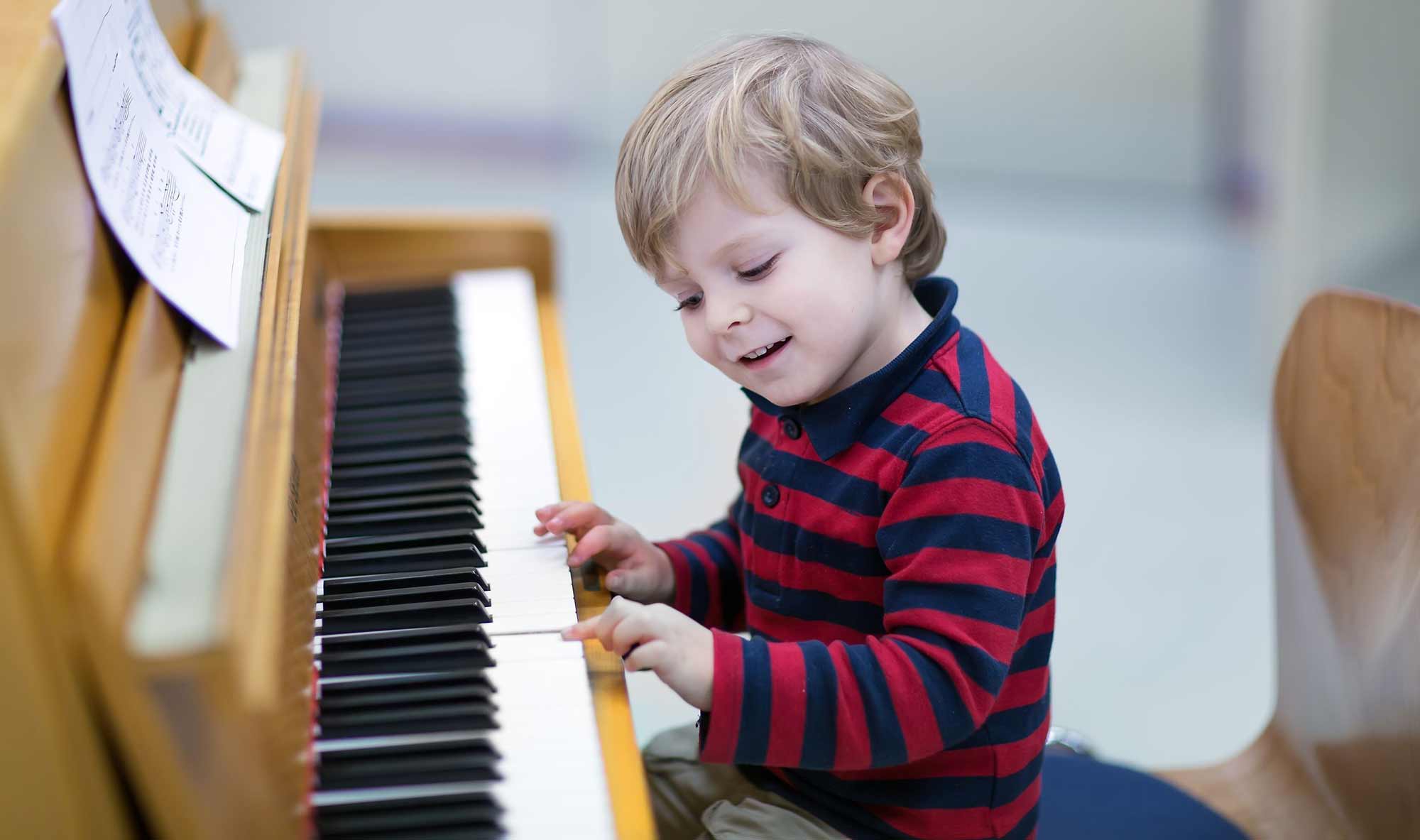You start watching YouTube and see the adorable 5-year-old prodigy playing Mozart, and you wonder if your child could be next! But how do you know if your child is ready to play piano?
Here is a list and some general guidance to help with that momentous decision.
This article is geared towards parents who want their child to learn the more traditional way – by reading notes. The Suzuki method can be used for some children even as early as 2 years old, but it is geared towards copying and generally does not involve reading notes.
So, how do you decide if you are giving your child a fair chance to learn such a glorious instrument?
First, Is Your Child Interested in Music?
Does your child like to sing or dance and seems to have some idea of the melody or rhythm? Can your child clap in time to a favorite song? After school, is it always music class or singing songs that top their day?
Second, Can Your Child Count to 5 and Recite the Alphabet from A-G?
In order to read rhythm, it will be important to count to at least 4, but they will need to count to 5 to know which finger to use when playing a song. Most beginner books have numbering for fingers. In piano, you always start counting from your thumb.
When first learning notes, C through G are very important to start; this is because many early melodies can be played with just those 5 notes using the most common position which is C position.
Although your child does not have to read to start piano, it can be more fun for them as most of the books will have silly songs to go with the notes.
Third, What Is Your Child’s Physical Development?
Can your child reach the piano or keyboard? Although there are adjustable benches (and telephone books), it may not yet be comfortable for your child to play sitting down. Can your child press down the keys on the piano or keyboard and make a sound?
Some pianos (like a Kawai) have a touch that requires a bit of exertion while generally, electronic keyboards have a lighter touch and require less pressure than an acoustic piano. Surprisingly, the touch on a piano can often be adjusted to a lighter or heavier touch. If you already have a piano just sitting around, and your child has trouble pressing down on the keys, you may be able to have a piano technician adjust the touch.
Then, there is the matter of whether you child can stretch each hand wide enough so that each finger sits on one of 5 white keys. Every finger will have a special place once piano starts!
Fourth, Is Your Child Coordinated and Knows the Left Hand from The Right?
You would be surprised how by many children – even in kindergarten – do not know one hand from the other. Can your child push down with just one finger at a time on a piano or keyboard?
It is one thing to just press your whole hand down on a piano or keyboard, but music will require a finger and sometimes 2 or 3 to press down together while getting the others out of the way.
Fifth, Can Your Child Sit Still for 15 or More Minutes and Stay Focused?
Even if your child can do 1-4 without any difficulty, this one is extremely important. Piano takes a lot of concentration, and the shortest realistic lesson that a teacher will want to teach is 15 minutes. Although it is fine to stand up for a quick stretch, sitting for nearly 15 minutes is very important both for learning and for practicing.
There are so many other factors to consider. For example, girls mature faster than boys and may be able to start as early as age 5 while boys may have to wait until 6 (this, of course, depends on your child).
Some children may not take well to direction and only wants to do things their way. This could be an unlikely stage for taking piano lessons. It is safe to say that the majority of children should be ready by age 7 to learn piano. I have been teaching piano for 11 years, and if I had to pick an ideal age, it would be age 7.
I started at age 6, but I was very studious for my age and an avid reader. One of my own students was having trouble learning piano at age 7, and it almost seemed that the day she turned 8, there was a miraculous transformation. So, be patient, and don’t expect too much at the beginning. Make it fun with no more than 10 minutes of practice a day and a lot of singing along to your child’s newfound piano talent.










